Once hailed as one of the most important MMORPGs in gaming history, EverQuest is no longer being neglected. It is being deliberately dismantled. And the world finally saw proof when the infamous internal “Death Clock” was leaked.
That clock wasn’t just symbolic. It was strategic. It confirmed what many long suspected: that Daybreak Games has no intention of reviving EverQuest. They are managing its sunset—on purpose.
The EG7 Shell Game
EverQuest’s parent company, Enad Global 7 (EG7), loves to name-drop the franchise. In investor presentations, quarterly reports, and strategic roadmaps, EverQuest is always listed as a crown jewel—a legacy IP, a monetization success, a “long tail” revenue stream.
But look closer, and you see the con.
Everything EG7 has done with regard to the franchise has been performative instead of substantive:
- They created Darkpaw Games in 2020 to signal renewed focus—then gutted the team.
- They ran nostalgic events while laying off veteran developers.
- They kept the cash flowing but stopped meaningful investment.
- They allowed an internal Death Clock to guide decisions while publicly pretending the game had a future.
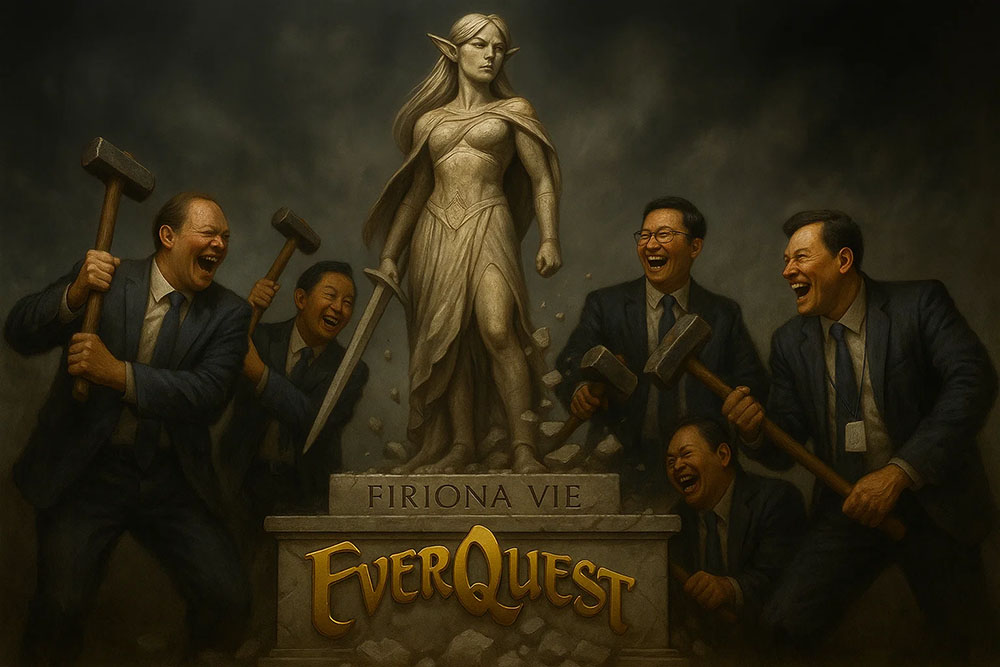
It’s not just mismanagement. It’s fraud by omission. A stage play for investors, while the franchise rots behind the curtain.
Daybreak: The Engine of Decay
Let’s be clear: Daybreak Games is the problem.
This isn’t about tech debt or player churn. This is about a studio that has lost the will to create. Instead of growing EverQuest, Daybreak is milking it to death. Everyone works remotely now. Office expenses are gone. Staff has been quietly trimmed to a skeleton crew. There is no next-generation vision. There is only the next expansion. And then the next. And then the end.
Ji Ham—the CEO behind it all—owns this failure. Under his leadership, Daybreak has become a hospice ward for dying IPs. The Death Clock wasn’t just a leak; it was a confession. The man running the studio had already given up. The only question was how long they could keep the money flowing before the corpse started to stink.
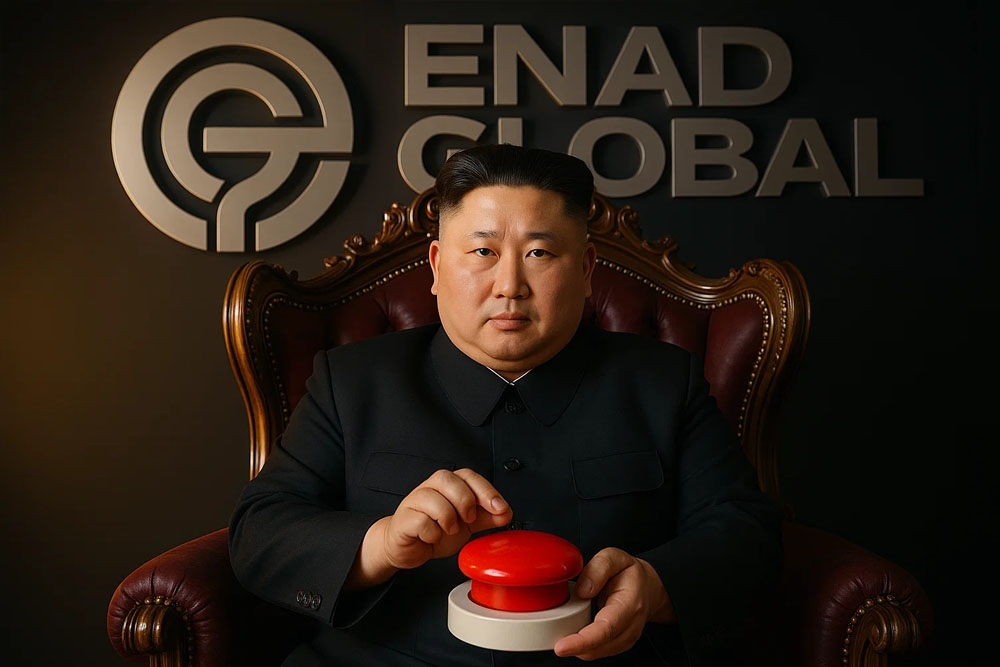
Two Volunteers, One Humiliation
The clearest indictment of Daybreak’s failure came not from critics—but from fans. Two unpaid volunteers built The Heroes’ Journey (THJ), a private EQ server that modernized the game in all the right ways: streamlined onboarding, elegant multiclassing, better UI, clearer progression, and a reinvigorated player base.
In other words: two people, working part-time, did more for EverQuest than Daybreak has done in a decade.
How did Daybreak respond? Not with humility. Not with an invitation. But with a lawsuit.
Lawsuit as Distraction
The THJ lawsuit is many things—but most of all, it is a smokescreen. Rather than confront their own creative failure, Daybreak chose to punish the people who exposed it. It’s cowardice disguised as corporate vigilance.
Worse: the lawsuit shatters what little goodwill remained between the studio and its fans. If you’re willing to sue the people who still love your game, then it’s clear you don’t.
Jen Chan Must Go—But That’s Not Enough
Jen Chan’s tenure as head of Darkpaw has been marked by opacity, stagnation, and failure. She must be removed. But replacing her alone won’t fix anything. Holly Longdale tried to modernize EQ years ago—and EG7 smothered her until she left to run WoW Classic for Blizzard.
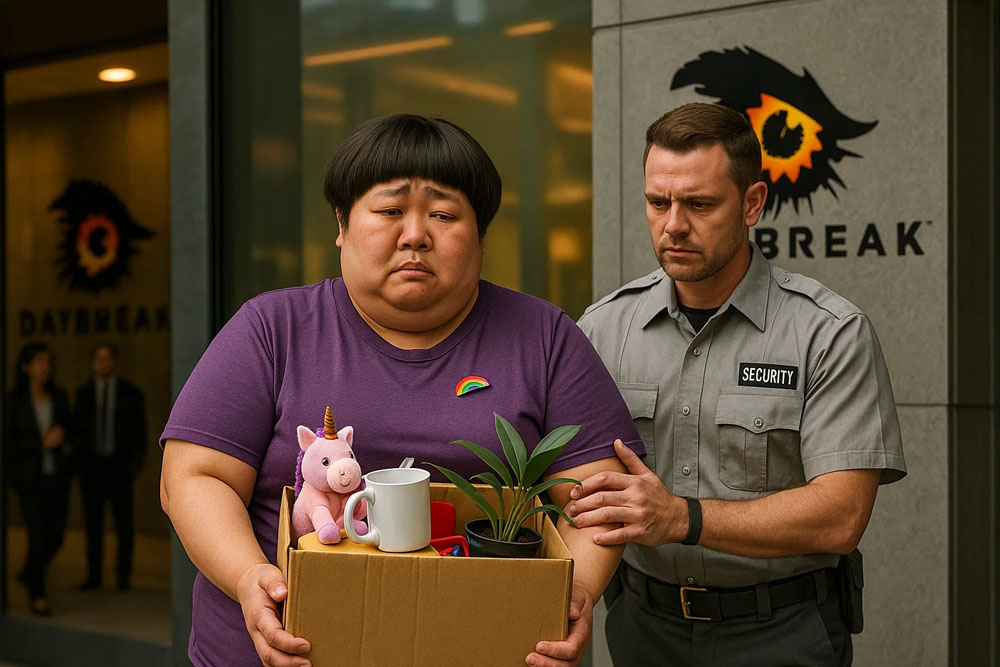
This is not just a personnel problem. It is a structural rot within Daybreak and EG7. Until that is cleaned out, no leader can save this franchise.
Sunset Without a Successor
In the business world, companies sometimes sunset legacy products as part of a healthy innovation cycle. Apple ended the Apple II because the Macintosh was waiting in the wings. Nintendo retired the Wii because the Switch was ready. But when you sunset a product without any replacement in development, that isn’t strategy. That’s negligence.
That’s what EG7 is doing to EverQuest.
They have no EverQuest 3. No spiritual successor. No mobile reimagining. No single-player tie-in. Just the same tired expansion cadence, followed by silence. They’re harvesting a legacy brand with no intent to evolve it. And every quarter that passes, the damage becomes harder to undo.
What Would Steve Jobs Say?
Steve Jobs understood product as soul. He didn’t tolerate mediocrity. And he despised companies that coasted on the fumes of past innovation.
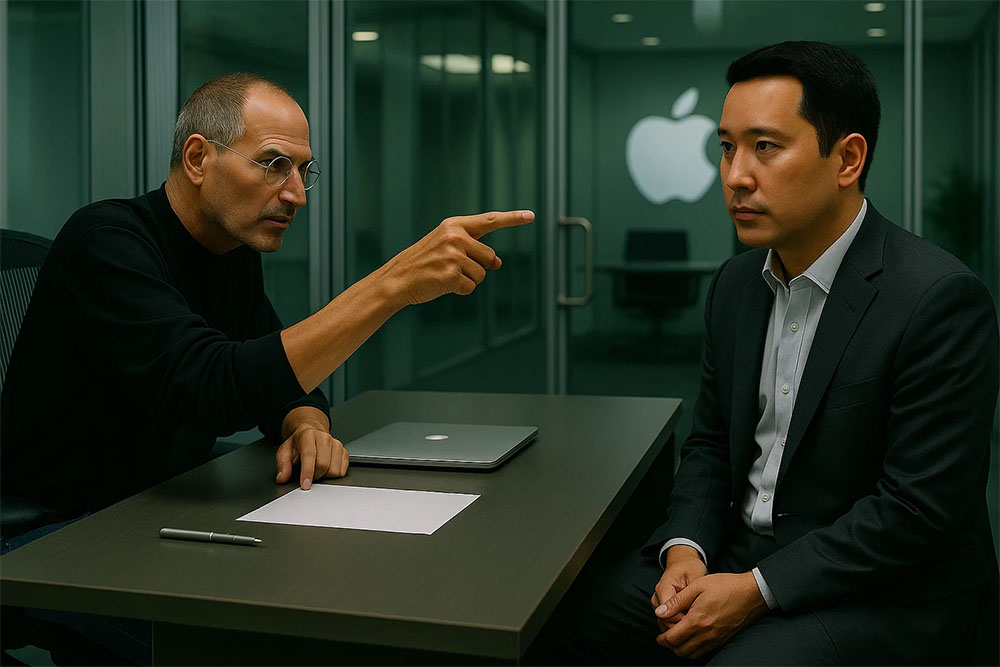
If Jobs were alive to see what EG7 and Daybreak are doing to EverQuest, he’d be blunt:
“When you care about your product, your customers can feel it. When you stop caring, they can feel that too.”
He would see the Death Clock and the lawsuit against THJ not as tactical moves, but as confessions of failure. He might say:
“They’ve taken something beautiful and reduced it to a cash register. That’s not leadership. That’s cowardice.”
Jobs believed that innovation is what distinguishes a leader from a follower. Daybreak isn’t even following anymore—they’re just stalling.
And if he were speaking to EG7 directly, he’d likely say:
“If you’re not willing to build something great, get out of the way and let someone else do it.”
The Shame of Inaction
EverQuest still makes money. It still has name recognition. EG7 knows this—that’s why they keep trotting it out in earnings calls. But they’re draining its value while pretending they’re preserving it.
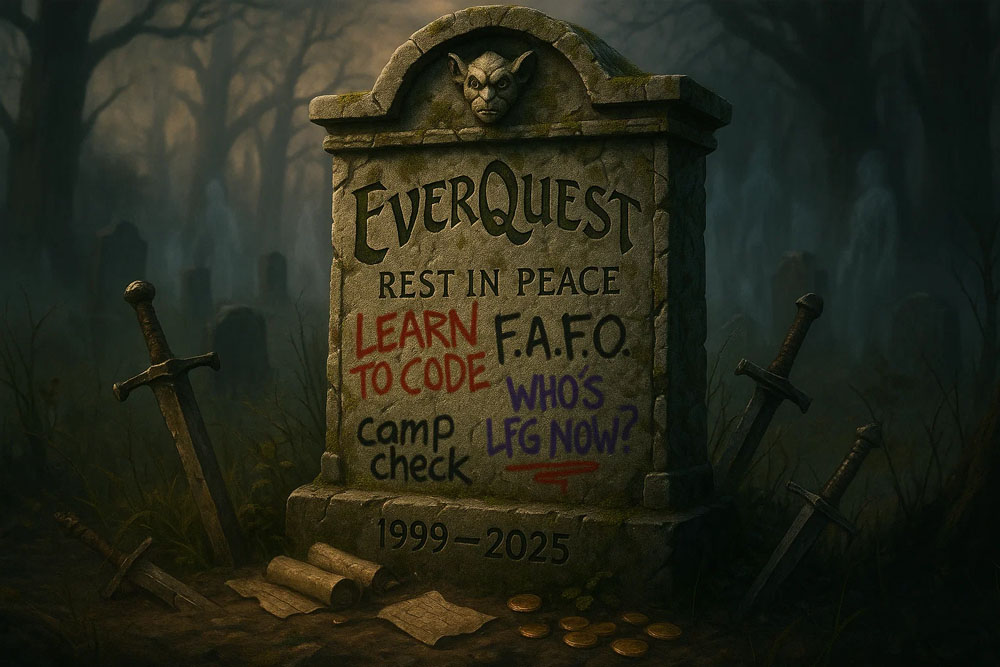
And now, thanks to the Death Clock leak, everyone sees the truth.
Conclusion: It’s Not Too Late—Yet
EG7 has three choices:
- Sell the IP to a studio with vision, talent, and respect for the franchise.
- Reinvest meaningfully by rebuilding Daybreak or replacing it entirely.
- Let it die and be remembered as the company that killed one of the greatest games ever made.
The Death Clock is still ticking.
And the shame will belong to them.
—Wolfshead

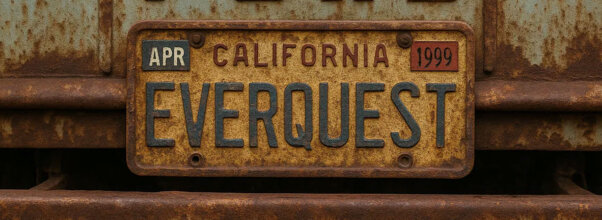



It is not just EverQuest and Daybreak, MechWarrior Online and other brands and franchises also got neglected. Actually, they never managed to create anything, they only ever cut jobs.
Google “Naavik Digest Hidden Gem: Enad Global 7” – written entirely from a business perspective and so stupidly off that it is funny to read. I wonder if this was a paid promo. Actually EG7 faces criticism for destroying franchises – and even if one doesn’t care about that, they lose money this way. They seem unable to make anything decent out of the IPs they are holding.
Some bloggers analyze their quarterly reports. There is no growth, only decline. And in this case they cut jobs every time and destroy franchises, what do they expect, actually? EG7 is just terrible.
What I always wanted for EverQuest 1 was to have all its graphics assets modernized to the state their current brand new content is. Because you can see assets from before 2000 and assets from 2020+ that look completely different. Yet they don’t update their old ones. This graphical disparity is what makes me unable to enjoy the game. Either keep all the graphics as they were back in the day, or update all of them.
The fact that they aren’t doing that means to me that they simply don’t care about the game in long term. If they did, they would update everything to ensure the game is evergreen and lasts another 20 years. Instead they treat it like Retail WoW – a cash cow that still has milk, but they don’t feed it fresh grass, they just expect as soon as milk runs out, we will try to save it, if not – it gets dumped.
Which is why private servers are doing a better job at keeping those games alive. They sometimes add new content and improve things. Turtle WoW will release an Unreal Engine 5 client for the server that will allow for better performance for players and allow the team the creative freedom to add as much content as they want. I’ve seen similar projects – a Lineage 2 server is updating to Unreal Engine 4, another MMORPG Requiem Online is also being updated to Unreal Engine 4 or 5. Both games are originally on Unreal Engine 2 or 3 so updating them is much easier.